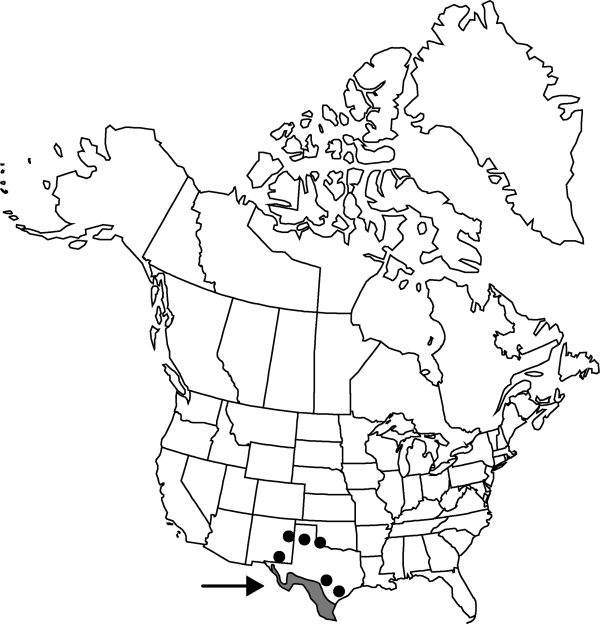Difference between revisions of "Mammillaria heyderi var. heyderi"
imported>Volume Importer |
imported>Volume Importer |
||
| Line 63: | Line 63: | ||
|publication year= | |publication year= | ||
|special status= | |special status= | ||
| − | |source xml=https:// | + | |source xml=https://bitbucket.org/aafc-mbb/fna-data-curation/src/2e0870ddd59836b60bcf96646a41e87ea5a5943a/coarse_grained_fna_xml/V4/V4_469.xml |
|subfamily=Cactaceae subfam. Cactoideae | |subfamily=Cactaceae subfam. Cactoideae | ||
|genus=Mammillaria | |genus=Mammillaria | ||
Latest revision as of 21:58, 5 November 2020
Stems 4–9 × 4–10(–15) cm; tubercles 9–20 × 3–7 mm. Spines (8–)14–18(–27) per areole; radial spines (7–)13–17(–26) per areole, abaxial radial spines, needlelike, 6–11(–16) mm diam., stiff; central spines 0.15–0.35 mm diam. Flowers 1.8–2.3 × 1.8–1.9 cm. 2n = 22.
Phenology: Flowering Mar–Apr; fruiting Aug–Mar.
Habitat: Chihuahuan desert scrub, Tamaulipan thorn scrub, and Edwards Plateau, usually limestone and alluvial substrates
Elevation: 10-1400 m
Distribution

N.Mex., Okla., Tex., Mexico (Coahuila, Nuevo León, Tamaulipas).
Discussion
The spines of Mammillaria heyderi var. heyderi are smaller and usually more numerous than those of the other flat-topped mammillarias in the United States. Individual plants with fewer radial spines, often segregated as var. hemispherica, are frequent in populations of var. heyderi near the Texas coast. Sometimes the central spines are very short. The coarse western var. bullingtoniana has a much narrower range of variation. Reports of M. heyderi var. heyderi from southeastern Arizona and southwestern New Mexico are based on var. bullingtoniana.
Selected References
None.